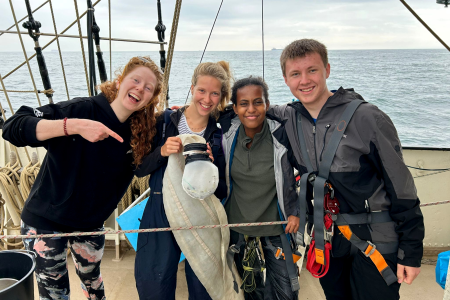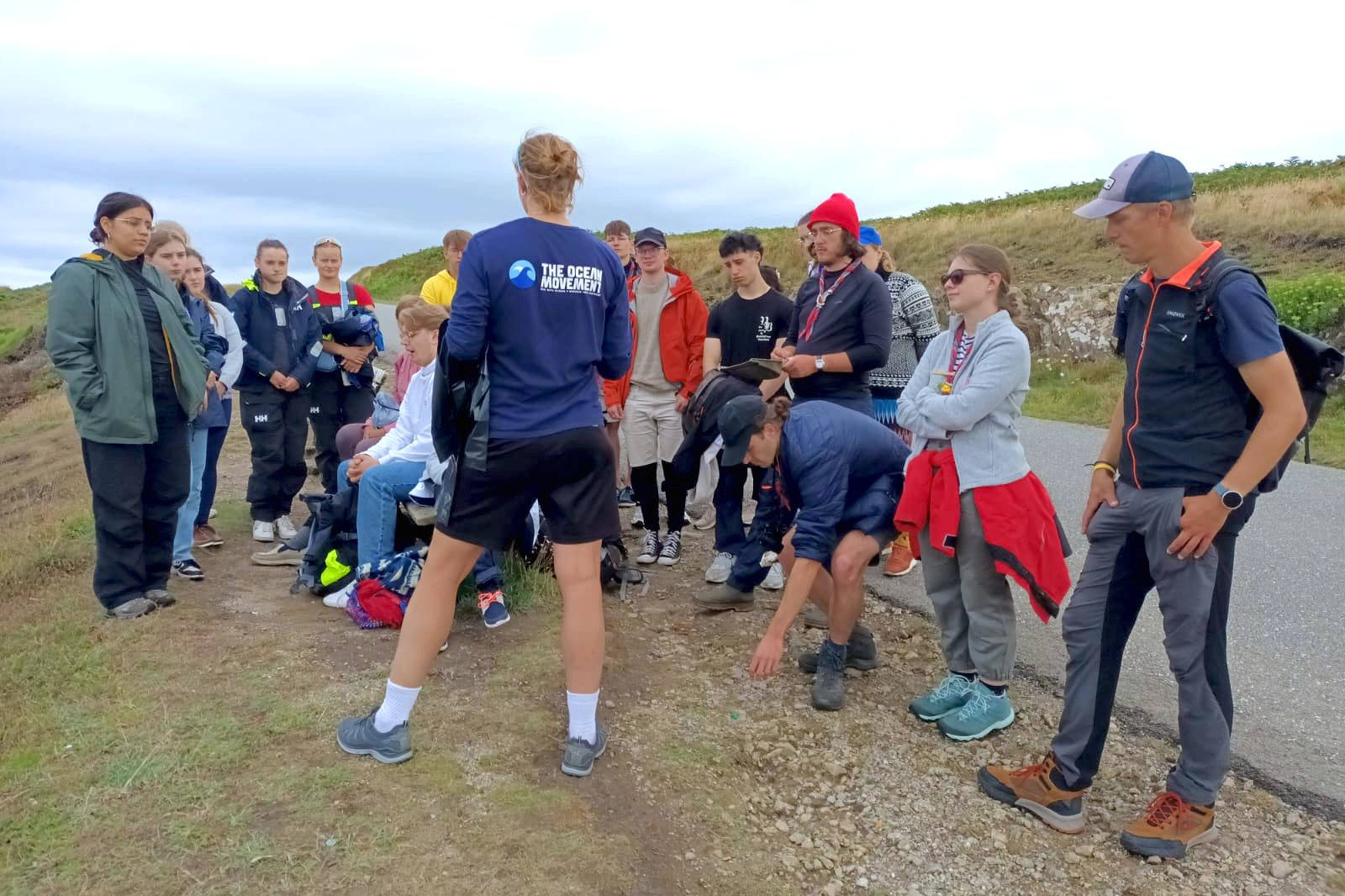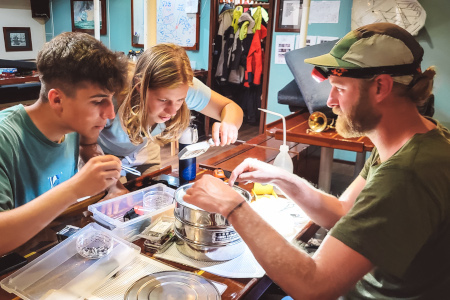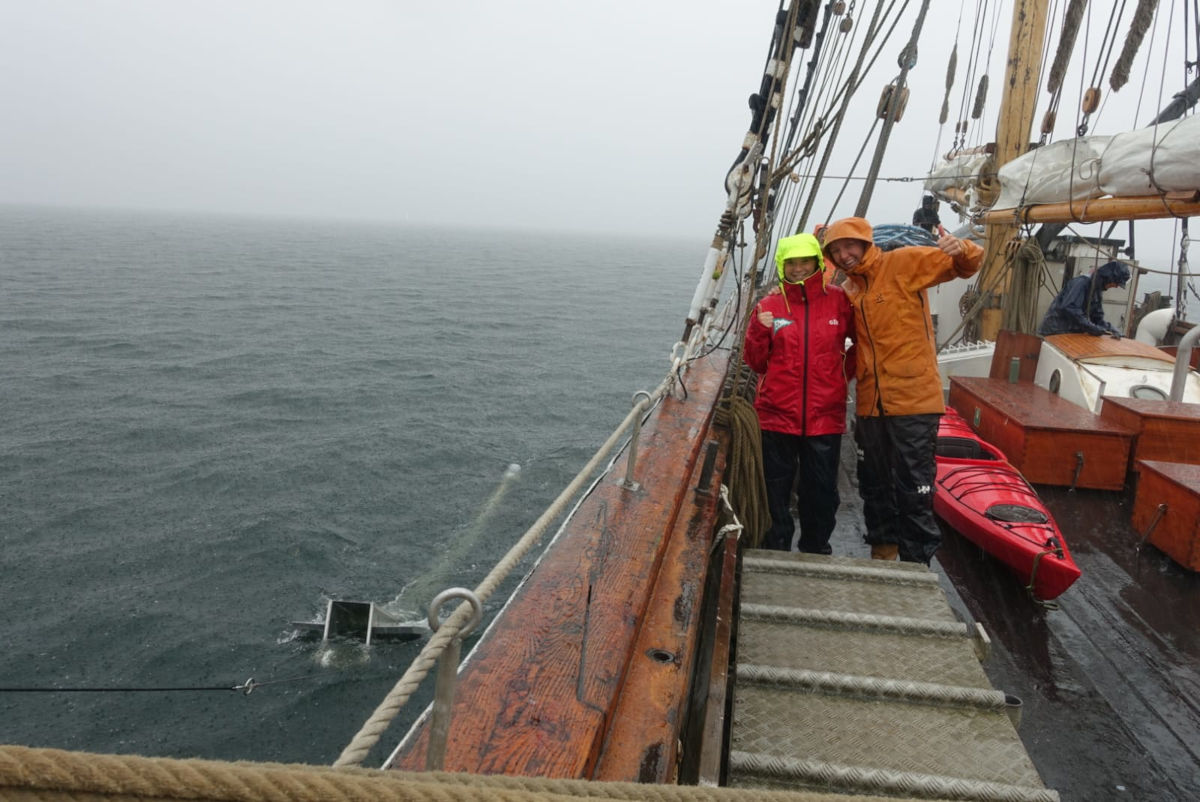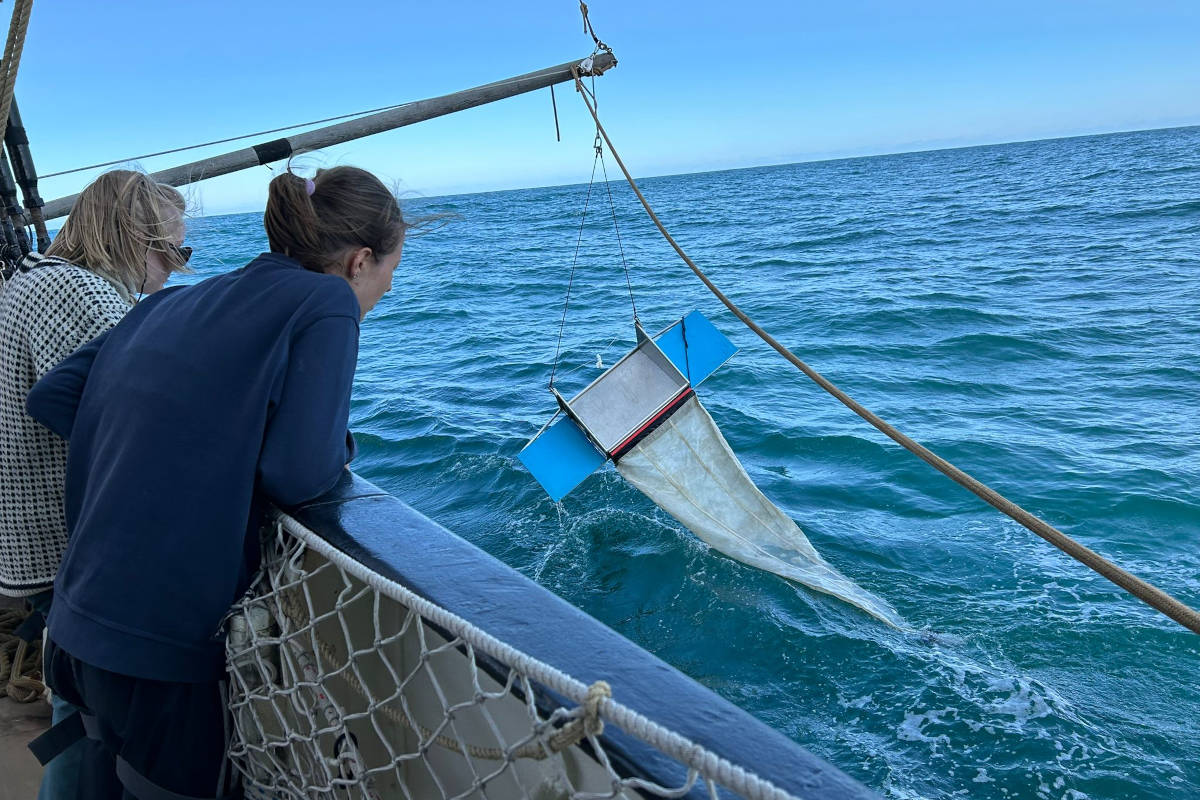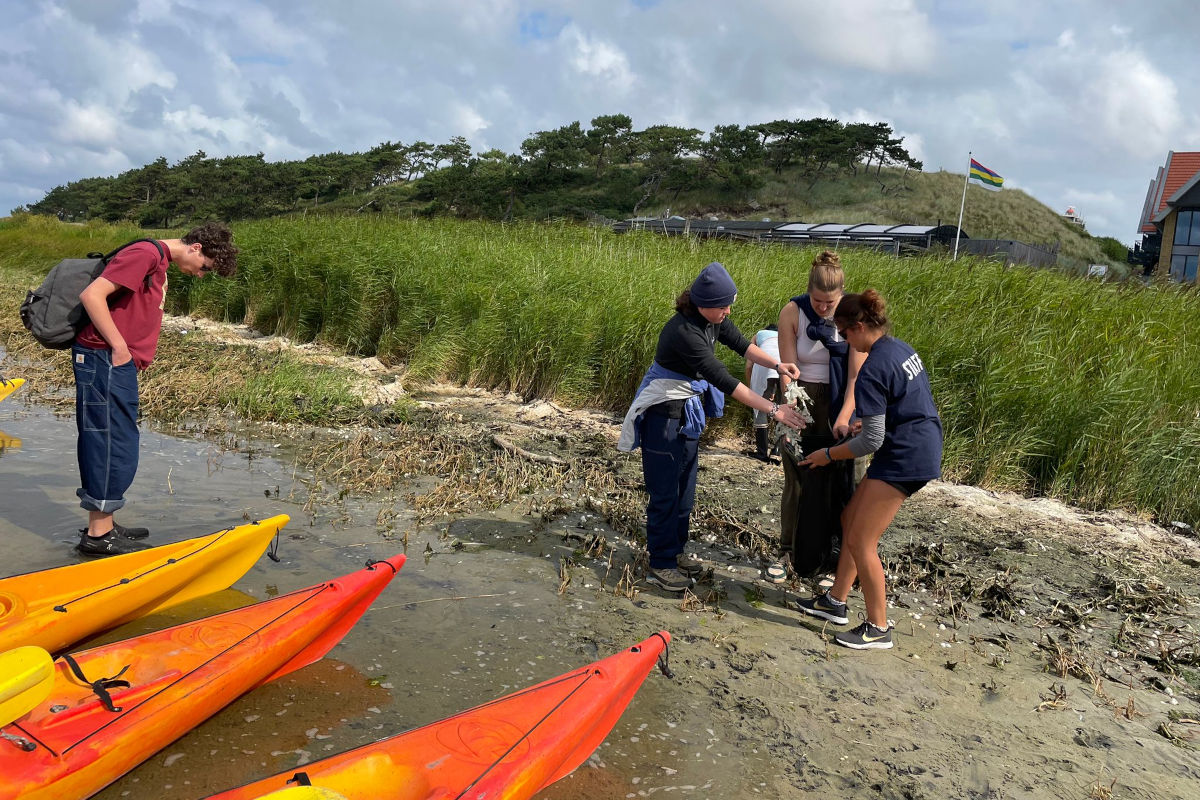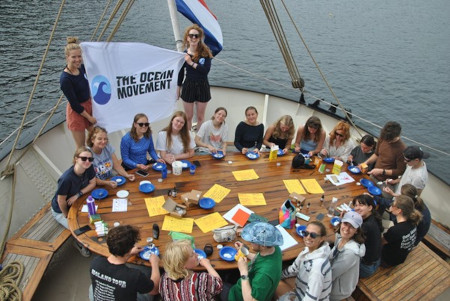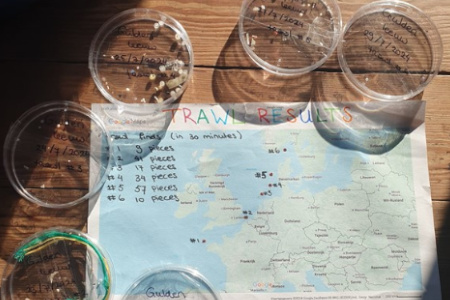Report prepared by The Ocean Movement
The Ocean Movement Foundation
We are on a mission to prevent plastic pollution from reaching our oceans. Using the Manta trawl, we gather data on microplastic pollution in the waters we sail through. As a support program for the sail training and cultural exchange, we have developed a program to deepen our understanding of the plastic pollution problem through research, lectures, and workshops. By combining research with adventure, cultural exchange, and sustainability, these trainees become ocean ambassadors, spreading the message of sustainability like ripples in the ocean. We believe that uniting forces is essential to tackle this complex issue.
The Manta trawl
For the plastic citizen science research we use the Manta trawl. This is a scientific tool designed to collect microplastic samples from the surface water. It skims the top 15 cm, capturing all plastic particles floating in this upper layer. These particles are then identified and counted. Using a flowmeter, we measure the total volume of water filtered, allowing us to calculate the concentration of plastic particles in the water.
The goal of this research is to make the invisible visible for the trainees and crew on board. Everyone is actively involved in both collecting and analyzing the samples, creating a hands-on learning experience. The data we gather is shared with the public and other organizations to provide valuable insights into the extent of plastic pollution.
We follow a citizen science protocol, developed by the 5 Gyres Institute in San Francisco (USA), and adjusted for our purpose. This standardized protocol ensures that samples are processed correctly and maintains the quality of the data. We’ve found it to be an excellent way to involve passengers in the sampling process, maximizing both the impact and the level of awareness. This form of citizen science, led by experts, offers a unique opportunity for the crew to engage deeply with the issue of plastic pollution, learn how scientific research is carried out, and contribute to data collection at relatively low costs.
The Plastic Program
We developed a supporting program, for the sail training and cultural exchange program, aimed at raising awareness and inspiring action to combat plastic pollution. This includes a quiz-style presentation covering various aspects of the issue, such as the history of plastic, its impact on nature and humans, and the possible solutions we can pursue. The quiz format encourages an interactive approach, encouraging participants to actively think, engage, and discuss their answers.
In addition, we host different workshops. In one of them participants examine their toiletries for microplastics and their impact. Additionally, we share and explore eco-friendly alternatives. This is followed up with a workshop in which we demonstrate how to make plastic-free products like toothpaste and deodorant using simple items from the kitchen cupboard. After the workshop we also create opportunities for open discussions, allowing space to explore not just plastic pollution, but other pressing environmental challenges facing our planet and society.
The other workshop takes the form of a cleanup, where we visit a beach or city to collect litter. The aim is to highlight the wide variety of plastic types, each coming from different sources and entering the environment at various stages of the plastic life cycle. To make the activity more engaging, we turn it into a game, encouraging participants to share stories about the plastic items they find. We also provide background information on the possible origins of the litter. Additionally, the cleanup offers an opportunity to observe wildlife and, if relevant, examine beached animals, further connecting participants to their surroundings and the environment.
Results of 2024 and previous years
During our summer 2024 expeditions aboard the Ingo, Skibladner II, Thalassa, Morgenster, and Gulden Leeuw, we collected 15 samples, and shockingly, 100% of these samples contained microplastic particles. Since 2019 we have taken 62 samples during the exchange@sea expedition of which 95% contained plastic.
Preliminary results of 2024 indicate an average particle count of 7226 particles per square kilometer, with a maximum of 24199 particles per square kilometer recorded. Notably, the highest sample revealed an alarming 58 particles within just 30 minutes of trawling. The highest concentrations were spread out over different parts of the North Sea, underscoring the urgent need for continued monitoring and action against plastic pollution. The total average concentration we found with our citizen science research is 12921 particles per square kilometer.
During the summer of 2024 a total of 131 youngsters joined us on these expeditions. A total of 521 youngsters joined us since the 2019 expeditions. All these youngsters became ocean ambassadors by:
● Understanding Plastic Pollution: The hands-on research using the Manta trawl has made the issue of microplastic pollution more tangible. Trainees see firsthand how pervasive plastic is in our oceans and learn about its sources and impacts.
● Citizen Science Engagement: Involving participants in data collection and analysis fosters a deeper connection to scientific research. They gain practical skills and knowledge about the scientific process, reinforcing the importance of data in addressing environmental issues.
● Awareness of Personal Impact: Workshops that explore everyday products and alternatives help individuals recognize their own contributions to plastic pollution. Participants learn about microplastics in personal care products and discover eco-friendly substitutes, encouraging more sustainable choices in their daily lives.
● Collaboration and Community: The program emphasizes the importance of working together to tackle complex environmental challenges. Through group discussions and collaborative cleanups, participants develop a sense of community and shared responsibility.
● Cultural Exchange and Adventure: The combination of sail training and cultural exchange broadens perspectives, allowing participants to appreciate different cultures and their approaches to sustainability. This immersive experience enriches their understanding of global environmental issues.
● Inspiration for Action: The engaging, interactive format of presentations and workshops motivates participants to become advocates for change. They leave with practical knowledge and inspiration to spread the message of sustainability in their own communities.
Overall, the Ocean Movement Foundation fosters a deep awareness of plastic pollution while empowering individuals to take meaningful action.
Set sail for your own research adventure!
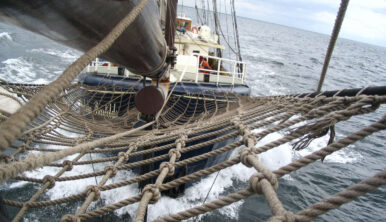

Kiel (DE) - Kiel (DE)
18 Jul 2025 - 27 Jul 2025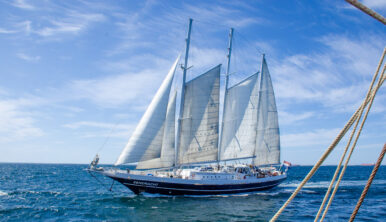

Esbjerg (DK) - IJmuiden (NL)
08 Aug 2025 - 18 Aug 2025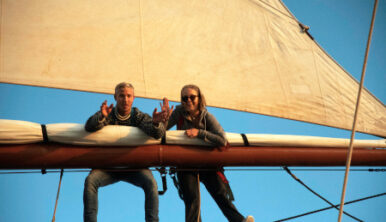

Rostock (DE) - IJmuiden (NL)
11 Aug 2025 - 19 Aug 2025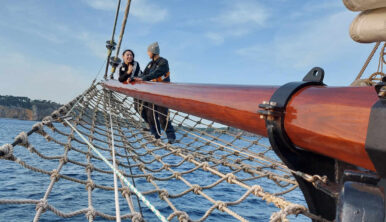

Rostock (DE) - IJmuiden (NL)
11 Aug 2025 - 19 Aug 2025
